Welcome to our comprehensive beginners coding guide! If you’re looking to start coding but don’t know where or how to begin, this guide is for you. We’ll provide you with step-by-step instructions on how to start coding, and give you insights on the most important aspects of coding. Our aim is to demystify the process of learning to code and help you establish a solid foundation in coding. Whether you’re interested in pursuing a career in tech or just looking to expand your skill set, this guide will be your go-to resource for building your programming skills from scratch. Let’s dive in and start coding!
How to Start Coding: Why Learn to Code?
Before we dive into the technicalities, let’s explore the benefits of learning to code.
1. Expanding Career Opportunities
If you’re looking to enhance your career prospects, learning how to code can be a game-changer. In today’s digital age, employers are increasingly seeking candidates with technical skills, and coding is no exception. With coding skills, you can pursue a career in software engineering, web development, data analysis, and a wide range of other fields.
2. Developing Problem-Solving Skills
Coding requires you to think logically and systematically, helping you develop analytical and problem-solving skills. This newfound ability to break down complex problems into smaller, more manageable components can be applied in both personal and professional settings.
3. Creating Innovative Solutions
Coding empowers you to create innovative solutions to real-world problems and develop tools that can have a positive impact on society. Whether you want to build a website, create an app, or automate a tedious task, coding skills can turn your ideas into reality.
4. Enhancing Creativity
Coding is not only about solving problems but also about creating something new. The possibilities are endless, and the canvas is blank. You can use coding to express your creativity and bring your wildest ideas to life.
5. Boosting Cognitive Function
Learning to code can also have a positive impact on your cognitive function. It can improve your memory, attention to detail, and overall mental agility. These benefits can extend to other aspects of your life, making you a more efficient and effective person.
These are just a few of the many reasons to learn coding. The benefits are clear, and with the right approach and resources, anyone can learn to code.
Choosing the Right Programming Language
When starting your coding journey, one of the first decisions you must make is choosing the right programming language for your needs. With hundreds of options available, selecting the suitable language can be overwhelming, especially for beginners. Here are some factors to consider when making your decision:
Project Goals
Your project goals will heavily influence the programming language you choose. For example, if you are interested in creating a website, you might want to consider languages like HTML, CSS, and JavaScript. If you want to develop a mobile app, Java or Swift could be a better fit. It’s essential to research the language’s capabilities and limitations to ensure it aligns with your project vision.
Learning Curve
As a beginner, you want to start with a language that has a gentle learning curve. Some programming languages, such as Python, are considered more accessible to newcomers. These languages have clear and concise syntax and are designed to be easy to read and understand.
Community Support
The programming language you choose should have a robust and active community to support and guide you as you develop your skills. An active community allows you to ask questions, get feedback and share your work with other coders. Additionally, the community can provide beneficial resources such as coding tutorials, forums, and tools that can make your learning experience more seamless.
| Popular Programming Languages for Beginners | Difficulty Level | Community Support |
|---|---|---|
| Python | Easy | Strong |
| JavaScript | Intermediate | Very Strong |
| Java | Intermediate | Strong |
| C++ | Difficult | Strong |
| Ruby | Easy | Strong |
Remember, there is no one-size-fits-all solution when it comes to programming languages. Take your time and do your research to select the language that best aligns with your goals, learning preferences, and vision.

Setting Up Your Development Environment
Before you start coding, it is essential to prepare your development environment, which will enable you to write, run, and test your code. You’ll need to have a good text editor and programming software installed on your computer. Here are some essential tools to consider:
| Development Tool | Description |
|---|---|
| Text editor | A text editor is a lightweight tool that allows you to write and edit code. Popular text editors include Notepad++, Visual Studio Code, and Sublime Text. These tools offer features like syntax highlighting, auto-completion, and the ability to work with multiple files. |
| Integrated Development Environment (IDE) | An IDE is an all-in-one solution that includes a text editor, compiler, debugger, and other tools for development. IDEs are ideal for complex projects and support multiple programming languages. Examples of popular IDEs include Eclipse, NetBeans, and Visual Studio. |
Regardless of the tool you choose, make sure it supports the programming language you want to learn.
Configuring Your Development Environment
Once you have the necessary tools, it’s time to configure your environment. Here are some steps to follow:
- Install the programming language you want to learn. Follow the instructions provided by the language’s official website.
- Install the necessary libraries and frameworks. Libraries and frameworks are pre-built pieces of code that you can incorporate into your own project. They can save you time and effort, but make sure you understand how they work.
- Set up your text editor or IDE. Configure the settings to your liking, such as font size and color scheme.
- Test your environment. Create a simple “Hello, World” program to ensure everything is working correctly.
By following these steps, you’ll have a solid foundation for coding and be ready to start learning programming concepts.
Understanding Basic Programming Concepts
Before you start coding, it’s important to have a foundational understanding of basic programming concepts. Whether you’re working on a simple script or a large-scale project, understanding these concepts will help you write clean, efficient code and troubleshoot errors effectively.
Variables
In programming, a variable is a container that holds a value. This value can be changed throughout the program. Variables can hold various kinds of data, such as numbers, strings, and booleans. It’s essential to choose appropriate variable names that are meaningful and descriptive of their purpose.
Data Types
Data types determine the kind of data a variable can hold. Some common data types include integers, floating-point numbers, strings, and booleans. Understanding data types is crucial because it affects how code behaves and how data is stored.
Control Structures
Control structures are used to dictate the flow of a program. Some examples of control structures include if-else statements, loops, and functions. These structures help programmers control the execution of their code, making it more efficient and flexible.
Functions
Functions are reusable blocks of code that perform a specific task. They can accept input data and return output data, making them valuable tools for modular programming. Understanding how to create and use functions is essential for efficient, organized coding.
Comments
Comments are non-executable lines of code used to explain code to other programmers or to remind yourself of the purpose of specific sections of code. Learning to write clear, concise comments will improve the readability of your code and make it easier to maintain.
By mastering these basic programming concepts, you’ll be able to take on more complex programming challenges. Remember to practice regularly to reinforce your knowledge and build your confidence in coding.
Learning Resources for Beginners
Are you ready to start your coding journey but not sure where to begin? Have no fear! There are plenty of coding tutorials and resources available online to support you, no matter your skill level. Here are some beginner coding resources to get you started:
Codecademy
Codecademy is an excellent place to start for beginners. With interactive coding lessons, you can learn by doing and get immediate feedback. Codecademy offers courses in various programming languages, including HTML, CSS, Python, and JavaScript.
Khan Academy
Khan Academy offers a vast library of courses on a variety of subjects, including computer programming. Their programming courses range from JavaScript to SQL and are suitable for beginners.
FreeCodeCamp
FreeCodeCamp is a non-profit organization that offers free coding tutorials and projects to beginners. They provide lessons on web development, data visualization, and more.
The Odin Project
The Odin Project is a comprehensive web development curriculum designed for beginners. It includes tutorials on HTML, CSS, JavaScript, and Ruby, as well as projects to practice your skills.
YouTube
YouTube is an excellent free resource for coding tutorials. Search for channels like Traversy Media, The Net Ninja, and Derek Banas for high-quality programming tutorials.
With so many coding tutorials and resources available online, there’s no better time to start your coding journey. Start exploring these resources today and take your first steps towards becoming a proficient coder!
Practicing Coding Skills
Practice makes perfect, and coding is no exception. Regular coding practice helps to cement your coding skills and expand your knowledge of programming concepts. Here are some effective strategies for practicing coding:
Coding Challenges
Coding challenges are a fun and engaging way to practice your coding skills. They are often structured as puzzles or games, where you are given a set of requirements and asked to write code that meets those requirements. Some popular coding challenge websites include:
- Codecademy: This website offers a variety of coding challenges and exercises, with a focus on interactive learning.
- HackerRank: This platform provides coding challenges in various programming languages and difficulty levels, as well as opportunities to participate in coding contests.
- LeetCode: This website provides coding challenges for job interview preparation, with a broad range of questions and solutions.
Coding Projects
Working on coding projects allows you to apply your coding skills to real-world problems and build your portfolio. You can find coding project ideas online or create your own. Here are a few resources to get started:
- GitHub: This platform hosts a vast collection of coding projects, ranging from simple to complex. You can contribute to existing projects or create your own.
- FreeCodeCamp: This website provides a list of coding projects for beginners, with step-by-step instructions and guidelines.
- CodePen: This website is a community of developers who share their coding projects and provide feedback to each other.
Collaboration Opportunities
Collaborating with other coders allows you to learn from their experience, share ideas, and work on coding projects together. Here are some resources for finding collaboration opportunities:
- Meetup: This website connects you with local coding meetups and events, where you can meet other coders and collaborate on projects.
- Slack communities: Many coding communities have Slack channels where you can communicate with other coders and share your work.
- Reddit: Reddit has numerous coding-related subreddits where you can connect with other coders and find collaboration opportunities.
By practicing coding regularly, you’ll become more comfortable with programming concepts and improve your coding skills. Don’t be afraid to challenge yourself and try new things. The more you practice, the better you’ll become.
Joining Coding Communities and Networking
Connecting with other coders is an excellent way to share knowledge, collaborate on projects, and expand your coding network. Joining coding communities and forums is an effective way to build relationships with like-minded individuals and learn from their experiences.
Here are some popular coding communities and forums you can join:
| Name of Community/Forum | Description |
|---|---|
| GitHub Community | A place where developers share knowledge and collaborate on projects. You can find development help, participate in discussions, and connect with other developers. |
| Stack Overflow | A forum where developers can ask and answer coding questions. With millions of questions and answers, you can find solutions to almost any coding problem. |
| DEV Community | An online community of developers sharing their knowledge and experiences. You can find tutorials, articles, and participate in discussions with other developers. |
In addition to these communities and forums, there are many networking platforms where you can connect with other coders. Here are a few to consider:
- LinkedIn: The world’s largest professional networking platform is a great place to connect with other professionals in your industry, including developers.
- Meetup: An online platform for organizing and attending in-person events with like-minded individuals. You can find coding-related meetups in your area and meet fellow coders in person.
- CodeWars: A community-driven platform that provides coding challenges to help users improve their coding skills. You can compete with other coders, earn points, and improve your skills.
Joining coding communities, attending coding events, and connecting with other coders on networking platforms can greatly enhance your coding skills and career opportunities. So why not start building your coding network today?
Conclusion
Learning to code can seem like a challenging task, but by following this ultimate guide, you can establish a solid foundation and develop your skills over time. Remember that coding is a valuable and in-demand skill that can open doors to new career opportunities.
Practice regularly and continue to learn by exploring new resources, joining coding communities, and networking with other coders. With dedication and perseverance, you can become a proficient coder and pursue your passions in the tech industry.
Keep Learning and Growing
This guide is just the beginning of your coding journey. As you continue to learn and grow, remember to stay curious, ask questions, and never stop exploring. With the right mindset and support, you can achieve your coding goals and unlock your full potential.
Good luck and happy coding!
FAQ
What is coding?
Coding, also known as programming, is the process of creating instructions for a computer to follow. It involves writing lines of code using a specific programming language to create software, websites, mobile apps, and more.
Why should I learn to code?
Learning to code can open up a world of opportunities. It allows you to pursue a career in technology, develop problem-solving skills, and even create your own projects. Coding is becoming increasingly essential in our digital world, and having coding knowledge can give you a competitive edge.
How do I choose the right programming language?
Choosing the right programming language depends on various factors, such as your goals, interests, and the type of projects you want to work on. Popular programming languages for beginners include Python, JavaScript, and Ruby. Consider your objectives and research the languages that align with your aspirations.
What do I need to set up my coding environment?
To set up your coding environment, you will need a text editor or an Integrated Development Environment (IDE), depending on your preference. You’ll also need to install the necessary programming language and any additional tools or libraries specific to your project. Consult online tutorials or resources for detailed instructions.
What are basic programming concepts?
Basic programming concepts include variables, data types, control structures (such as loops and conditionals), functions, and object-oriented programming principles. Understanding these concepts is essential for writing code and solving problems through programming.
Where can I find coding tutorials and resources for beginners?
There are numerous online platforms and websites that offer coding tutorials and resources for beginners. Some popular options include Codecademy, FreeCodeCamp, and Khan Academy. Explore these platforms to find tutorials, interactive exercises, and projects designed to help beginners learn coding.
How can I practice coding?
Practicing coding is crucial for improving your skills. You can practice by solving coding challenges on websites like LeetCode and HackerRank or by working on coding projects. Another valuable practice method is collaborating with other coders through open-source projects or coding communities.
How can I join coding communities and network with other coders?
Joining coding communities and networking with other coders can be done through online forums and platforms such as Stack Overflow, GitHub, and coding-specific social media groups. Engage in discussions, ask questions, and contribute to the community to expand your network and learn from others.
Next Tutorial: Understanding Javascript Data Types: A Complete Guide


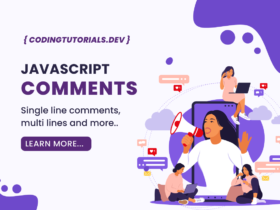
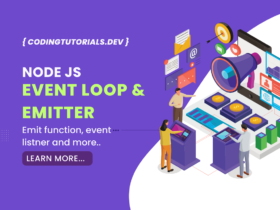
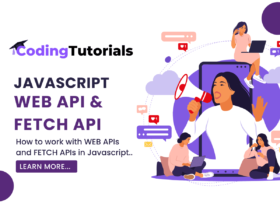
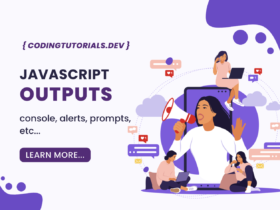
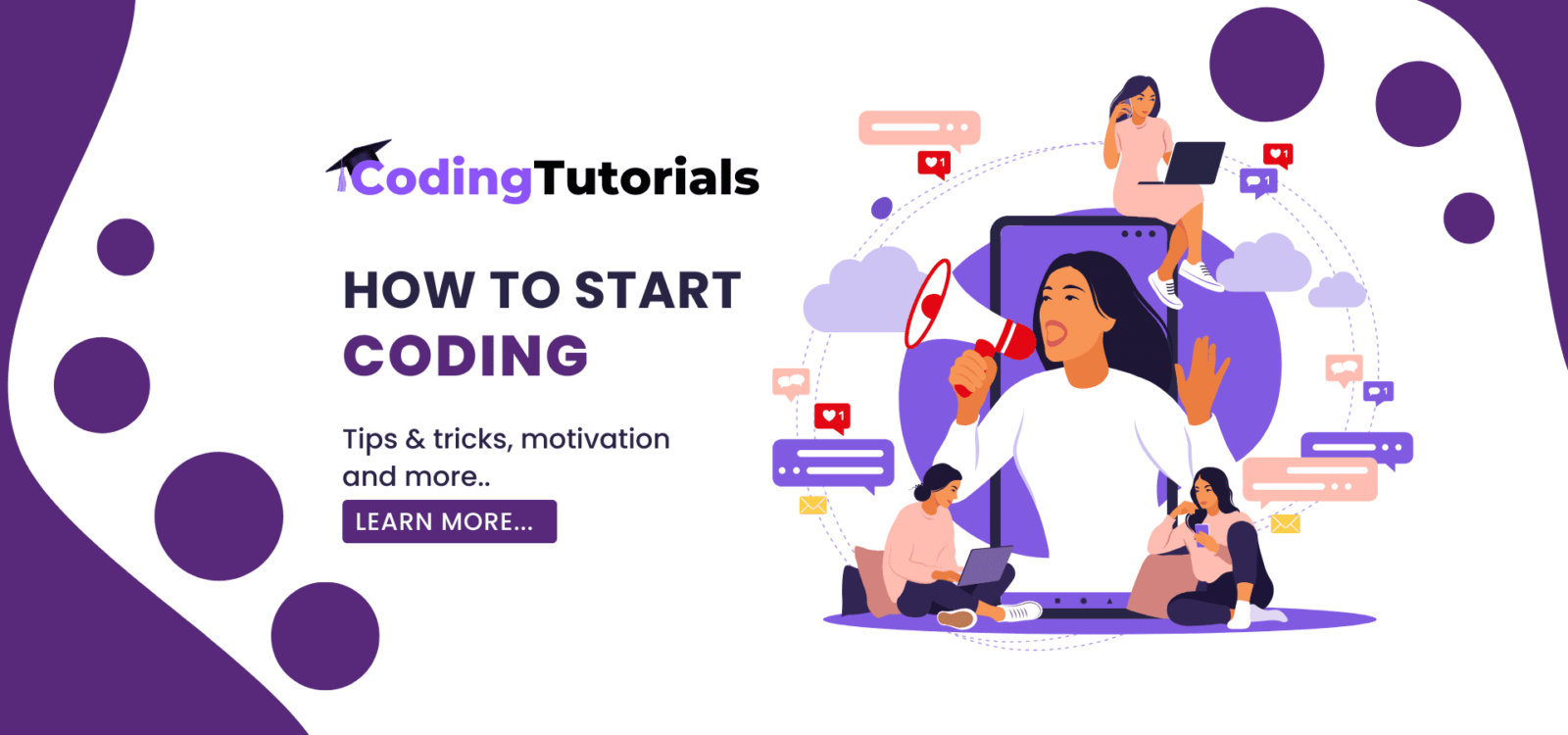
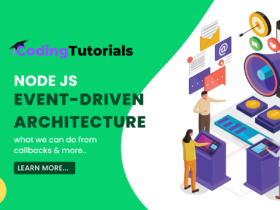
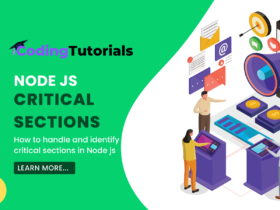
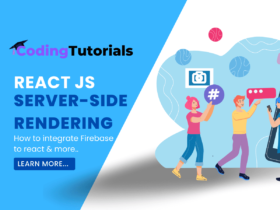
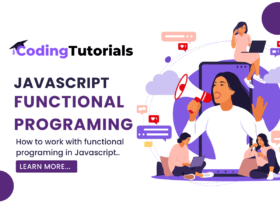
1 Comment